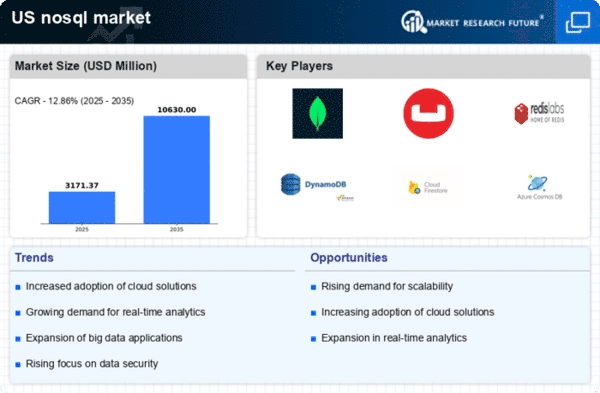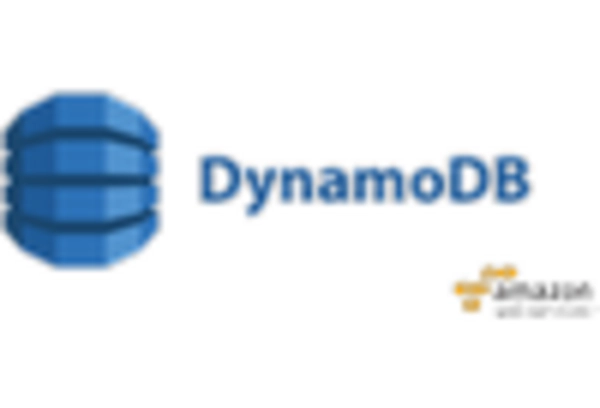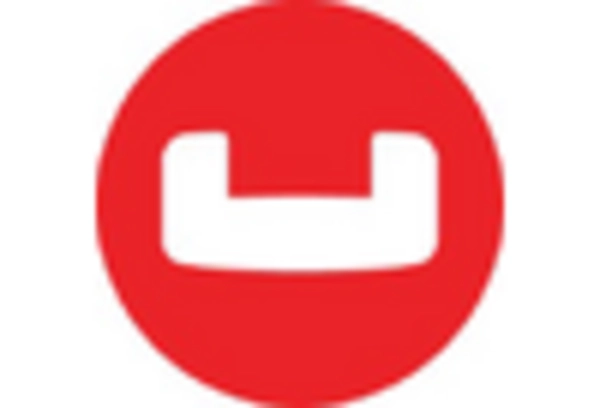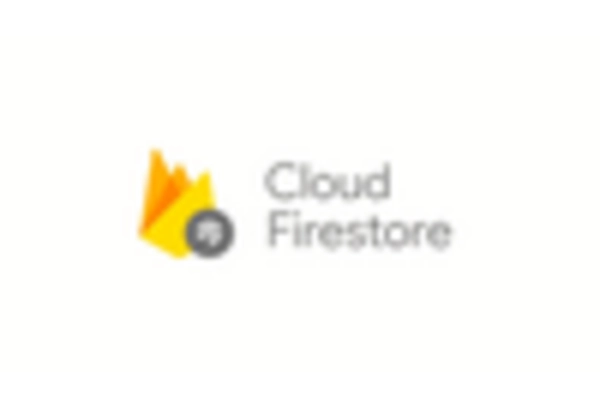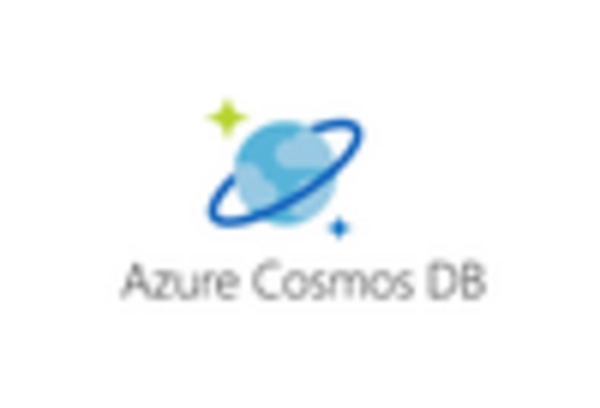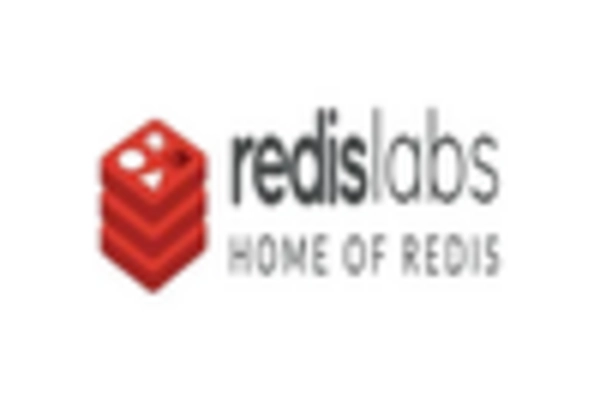Growing Demand for Big Data Analytics
The nosql market is experiencing a surge in demand for big data analytics solutions. Organizations are increasingly recognizing the value of data-driven decision-making, leading to a projected growth rate of approximately 25% annually in the sector. This trend is driven by the need for businesses to process vast amounts of unstructured data efficiently. As companies seek to gain insights from their data, the adoption of nosql databases, which excel in handling large volumes of diverse data types, becomes essential. The ability to analyze data in real-time allows organizations to respond swiftly to market changes, enhancing their competitive edge. Consequently, the nosql market is likely to see significant investments in analytics tools and technologies, further propelling its growth in the coming years.
Emergence of Hybrid Cloud Environments
The transition towards hybrid cloud environments is reshaping the nosql market. Organizations are increasingly adopting hybrid models to leverage the benefits of both on-premises and cloud-based solutions. This trend is driven by the need for flexibility, scalability, and cost-effectiveness in data management. As businesses seek to optimize their IT infrastructure, the demand for nosql databases that can seamlessly integrate with both environments is likely to rise. The hybrid cloud market is expected to grow at a CAGR of 22% over the next five years, indicating a strong potential for nosql solutions that cater to this evolving landscape. Consequently, the nosql market is positioned to benefit from this shift, as organizations prioritize solutions that enhance their operational agility.
Growing Interest in Open Source Technologies
The nosql market is witnessing a growing interest in open source technologies. Organizations are increasingly turning to open source nosql databases due to their cost-effectiveness, flexibility, and community support. This trend is particularly pronounced among startups and small to medium-sized enterprises (SMEs) that seek to minimize costs while maximizing functionality. The open source database market is projected to grow by 18% annually, reflecting a shift towards collaborative development and innovation. As businesses recognize the advantages of open source solutions, the nosql market is likely to see a rise in the adoption of these technologies, fostering a more competitive landscape. This movement towards open source may also encourage further advancements in nosql database capabilities, benefiting the entire industry.
Rise of Internet of Things (IoT) Applications
The proliferation of Internet of Things (IoT) devices is a key driver for the nosql market. With billions of connected devices generating massive amounts of data, traditional relational databases struggle to manage this influx. Nosql databases, designed for scalability and flexibility, are increasingly adopted to accommodate the unique requirements of IoT applications. The market for IoT is expected to reach $1 trillion by 2025, creating a substantial demand for nosql solutions that can efficiently store and process data from diverse sources. This trend indicates a shift towards more adaptive data management systems, as organizations seek to leverage IoT data for operational efficiency and innovation. As a result, the nosql market is poised for robust growth, driven by the need to support the expanding IoT ecosystem.
Increased Focus on Data Security and Compliance
As data breaches and privacy concerns escalate, the nosql market is witnessing a heightened focus on data security and compliance. Organizations are compelled to adopt robust data management solutions that not only ensure security but also comply with regulations such as GDPR and CCPA. This shift is prompting businesses to invest in nosql databases that offer advanced security features, including encryption and access controls. The market for data security solutions is projected to grow at a CAGR of 12% through 2027, indicating a strong correlation with the nosql market. Companies are increasingly prioritizing secure data storage and management practices, which may lead to a significant uptick in the adoption of nosql technologies that align with these security and compliance needs.


